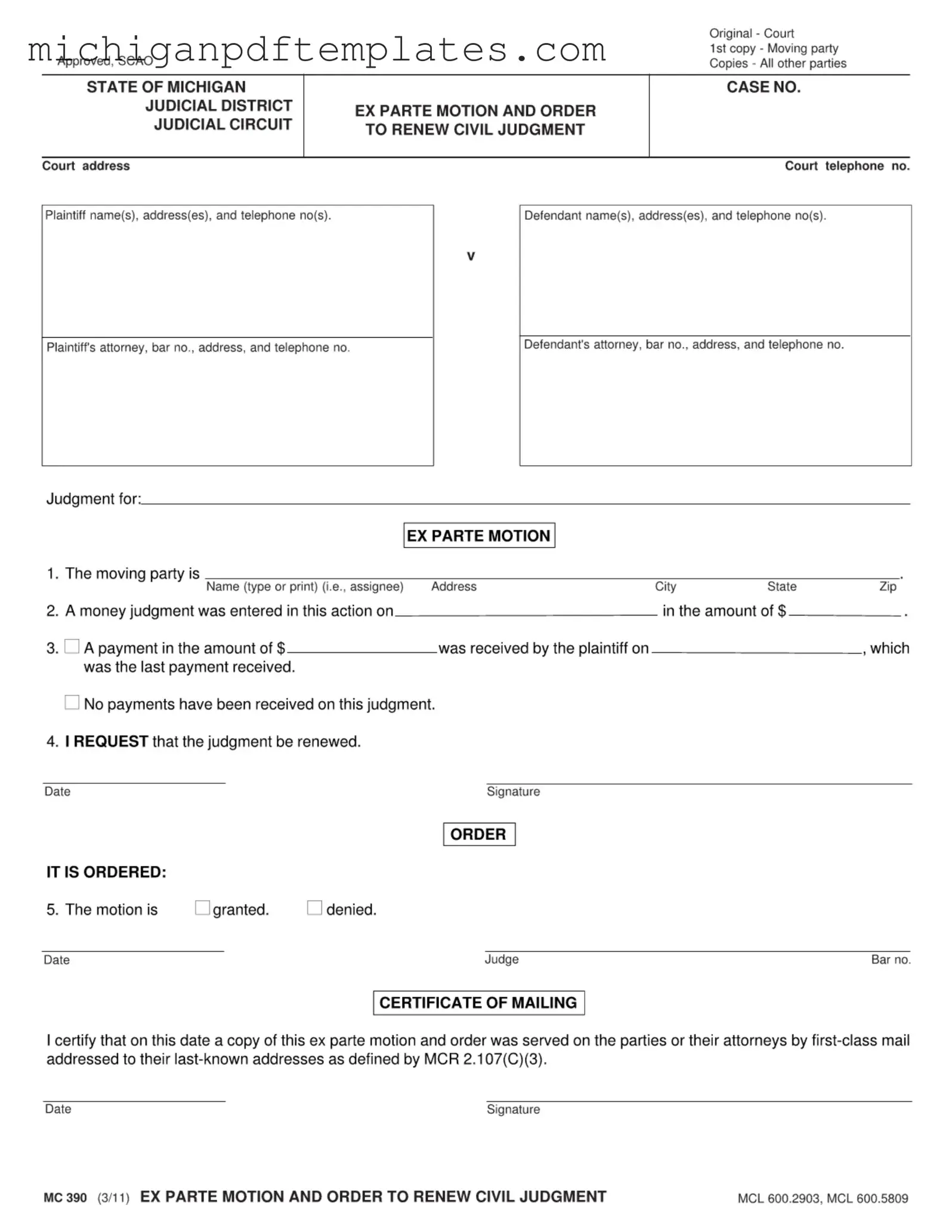Fill in Your Michigan Ex Parte Form
The Michigan Ex Parte form is a legal document used to request the renewal of a civil judgment without requiring the presence of all parties involved. This form allows a moving party to seek a judgment renewal efficiently, ensuring that the rights of all parties are respected while streamlining the process. Understanding how to properly fill out and submit this form is crucial for anyone navigating the civil judgment renewal process in Michigan.
Take the first step in renewing your civil judgment by filling out the Michigan Ex Parte form. Click the button below to get started.
Get Your Form Now

Fill in Your Michigan Ex Parte Form
Get Your Form Now

Get Your Form Now
or
▼ PDF Form
Finish this form quickly and move on
Fill in and complete Michigan Ex Parte online quickly.